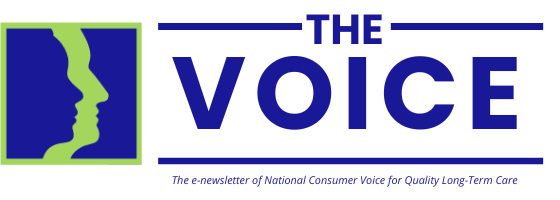|
April 2, 2024
In this Issue:
- CMS Issues NPRM Regarding Medicare Payments for Skilled Nursing Facilities and Civil Monetary Penalties
- Legislation Introduced in House Would Increase Personal Needs Allowance for Nursing Facility Residents
- Webinar Next Week on Hidden Profits in Nursing Homes
- ACL Seeks Recommendations for Elder Justice Coordinating Council Priorities
|
|
CMS Issues NPRM Regarding Medicare Payments for Skilled Nursing Facilities and Civil Monetary Penalties
On Friday, March 26, 2024, the Centers for Medicare & Medicaid Services (CMS) issued a Notice of Proposed Rulemaking (NPRM) that would raise Medicare payments for skilled nursing facilities by 4.1%. In addition, CMS proposes to change the current enforcement regulations to permit multiple civil monetary penalties (CMP) for poor care, specifically allowing for per day and per instance CMPs. Currently, regulation does not permit the issuance of per instance and per day CMPs for the same survey. CMS claims that this will ensure that penalties for non-compliance are sufficient.
Read the NPRM.
|
|
Legislation Introduced in House Would Increase Personal Needs Allowance for Nursing Facility Residents
Last week, two bills were introduced in the House of Representatives that would increase the amount of money Medicaid beneficiaries residing in nursing homes could keep. H.R. 7682, the Personal Needs Allowance Modernization Act, would increase the personal needs allowance (PNA) for a single person to $60 and for a married couple $120. This increase would double the current PNA, which has not been changed in almost four decades. A PNA is the amount of money a nursing home resident is allowed to keep from their income to purchase things such as clothing, haircuts, phone bill, and other items not covered by Medicaid. The rest of the residents’ income is paid to the facility for care. Another bill, H.R. 7697, the Dignity and Autonomy for Our Supplemental Security Income PNA Beneficiaries Act, would apply cost-of-living adjustments to the maximum benefit amount recipients of Social Security Income (SSI) are paid when they are institutionalized. Currently, SSI recipients are only paid $30 per month while in an nursing home. H.R. 7697 would increase this amount by providing annual cost-of-living adjustments.
Consumer Voice strongly supports these bills. It is shameful that some nursing home residents must live off of $30 per month. These paltry amounts isolate residents from the community and place a financial burden on residents that causes distress. We applaud Representatives Wexton and Kildee for standing up for nursing home residents and introducing this important legislation.
|
|
Webinar Next Week on Hidden Profits in Nursing Homes
Consumer Voice has long been a proponent of increased transparency and accountability in nursing home finances. Data and research show that roughly 75% of nursing homes use related party transactions. These common transactions permit some nursing home owners to hide how profitable their facilities really are.
On March 4, 2024, a new paper, “Tunneling and Hidden Profits in Health Care” was published by Dr. Ashvin Gandhi and Dr. Andrew Olenski. Their paper looked specifically at related party transactions in nursing homes and “tunneling.” Tunneling is the process by which nursing home providers “covertly extract profit by making inflated payments for goods and service to commonly owned related parties.” This paper, a first of its kind, found that in 2019, 63% of nursing home profits were “hidden” in related party transactions. In other words, the reported profits by the industry are roughly 1/3 of what they truly are.
On April 10, please join Consumer Voice when we welcome the authors of this groundbreaking study to our webinar “Hidden Profits in the Nursing Home Industry.” We will discuss with the study authors their methodology, findings, and what steps they recommend be taken to address the lack of transparency and accountability that allows nursing homes to continuously claim poverty as to why they are unable to provide high-quality care.
Join the webinar April 10, 2024 at 2 pm ET to hear Dr. Gandhi and Dr. Olenski discuss their paper, needed reforms, and answer your questions.
Register
|
|
ACL Seeks Recommendations for Elder Justice Coordinating Council Priorities
The Administration for Community Living (ACL) released a Request for Information on priority issues on which the Elder Justice Coordinating Council should focus. ACL seeks recommendations on how the Elder Justice Coordinating Council "can be the most beneficial to promoting elder justice and have the greatest positive impact for survivors of elder abuse, neglect, and exploitation and their communities."
Submit comments to ejpubliccomments@acl.hhs.gov and include “EJCC Priorities” in the subject line of the email.
|

|
